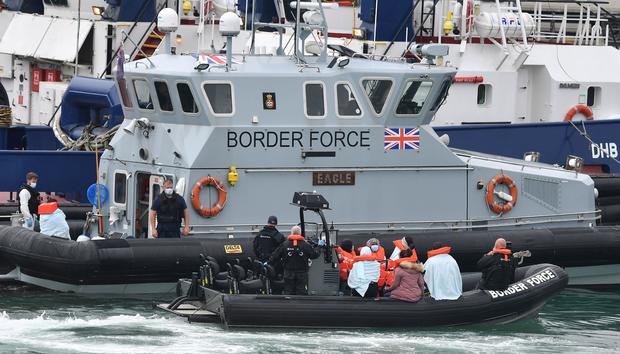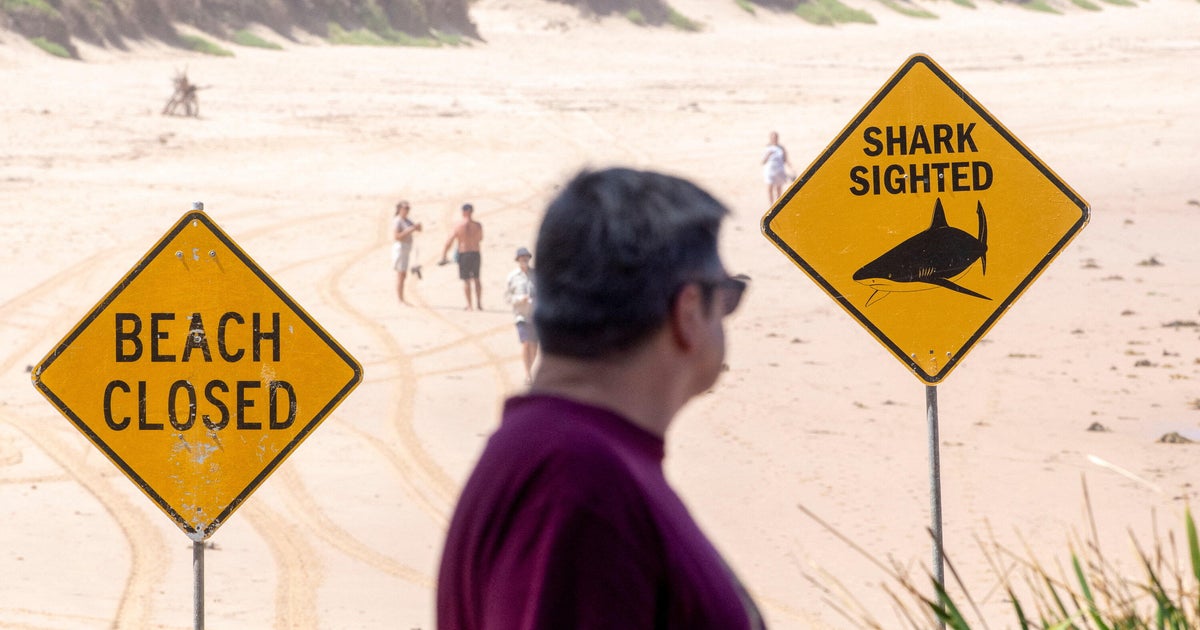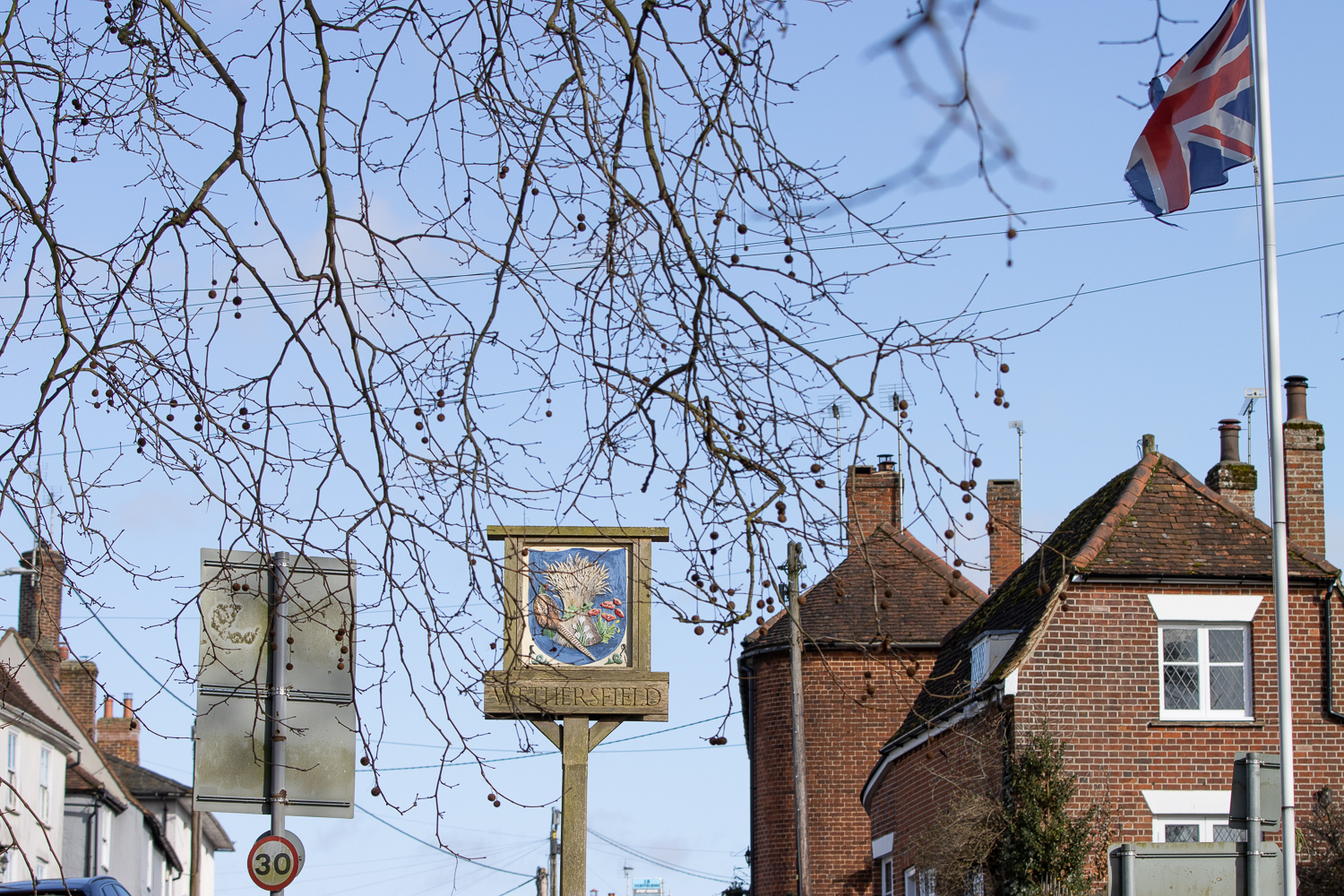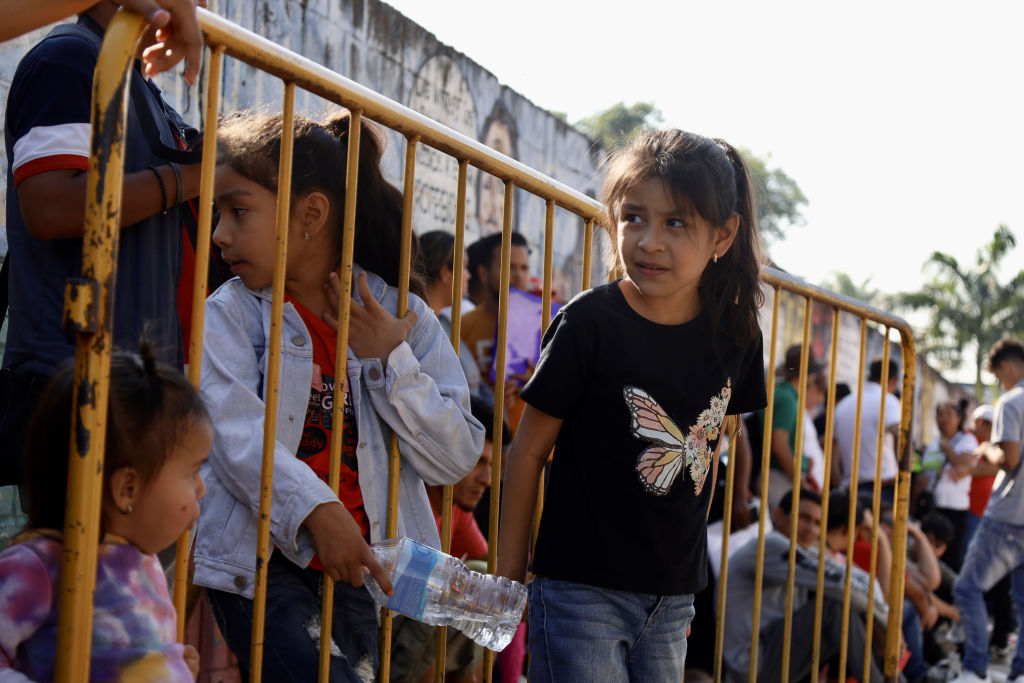Why coronavirus is driving more migrants and refugees to try to reach Britain by boat
London — A man who had just landed on a British beach after crossing the English Channel in a dinghy from France was reportedly attacked earlier this month by a witness who saw him arrive, as the coronavirus pandemic contributes to a surge in attempts by migrants and refugees to enter the United Kingdom by boat.
Police opened an investigation into the attack and said the victim, in his 20s, was not seriously injured.
"While urgent action is needed by the French and the (British) Home Office, there is no excuse for violence or vigilante behavior," local member of Parliament, Natalie Elphicke, said.
August saw more people attempt to make the more-than-20-mile trip across the channel and enter the U.K. in this way than has ever been recorded in a single month, according to media reports.
Britain's Home Office does not maintain a running total of migrant channel crossings, but journalists calculate the numbers based on ad hoc information released by the government. BBC News calculates that more than 5,000 people have tried to make the trip from France so far this year — the highest number on record and, according to Sky News, more than five-times last year's total.
But refugee advocacy groups, including the United Nation Refugee agency, UNHCR, say the U.K. is not facing a migrant crisis.
"What is happening is that the movement of people has changed, and it has become a lot more visible because of the COVID situation," UNHCR External Relations Officer Laura Padoan told CBS News.
"We're seeing far fewer lories (trucks) being able to cross through the channel, so people are resorting to using smugglers' dinghies," she said, explaining that it's too soon to tell if the overall number of asylum seekers has increased, or if it's just the number of people attempting to cross by boat versus other methods.
"What we're calling for governments to do is expand the safe, legal routes that make that immigration route for families to be together again fairer and less restrictive," she said.
"Deeply disappointed and concerned"
As more people attempt to cross the English Channel — one of the busiest shipping lanes in the world — there are also more unaccompanied minors among them. Many land on beaches in the English county of Kent.
"They tell us that they were very cold and wet and scared, some that there were too many people in the boat and they didn't want to get in but they were sort of forced to get in by the people smugglers," Brigid Chapman, spokesperson for the Kent Refugee Action Network, told CBS News. "They're just extremely grateful to be here."
Last Monday, the local government in Kent said it did not have the capacity to take care of any more children arriving on its shores.
"I am deeply disappointed and concerned that, despite our many efforts to avoid this unthinkable situation, it has been necessary to make this announcement today," Kent County Council Leader Roger Gough said in a statement. He appealed to the central government and other counties across the U.K. to help care for the unaccompanied children.
"We are grateful for the support some other local authorities have given recently but unfortunately, due to the continued high level of arrivals, it has not been enough to make a real difference to the numbers," said Sue Chandler, Cabinet member for Integrated Children's Services in Kent.
Chapman said the county council has been flagging the issue for months to the central government, and part of the reason it's overwhelmed is reluctance by other local councils to take on unaccompanied minors because of a lack of funding. She said the U.K. as a whole could handle the number of migrants and refugees arriving by boat, and that Britain still receives many fewer asylum claims than other countries.
"With a lot of the children that we work with, they didn't actually have any choice about where they went. They were put into the hands of people smugglers. And they really, you know, they traveled at night, they were often beaten and deprived of food because the people smugglers need to keep them sort of compliant," Chapman told CBS News.
"Normally parents have asked for them to come to the U.K. because… they may have a cousin or something, or somebody they think can kind of help that young person to make a start in life," she said.
"The situation is becoming really, really toxic"
Earlier this month, British Home Secretary Priti Patel created a new position — a Clandestine Channel Threat Commander — to address the rising number of migrants and refugees trying to cross the channel in small boats.
"The number of illegal small boat crossings is appalling," Patel said in a statement. "We are working to make this route unviable and arresting the criminals facilitating these crossings and making sure they are brought to justice."
The government also announced it was considering plans to deploy large navy vessels to the channel, which refugee groups said would be dangerous and could even prove deadly.
Britain's Royal Navy told CBS News it currently has no plans to deploy any ships, but that it was dedicating 10 staff members to help with planning and logistics.
"It's really important that the political rhetoric is in proportion to the scale of what's happening on the channel, which is manageable and the numbers are low," said Padoan, of UNHCR.
"I feel like a lot of the mainstream media is dancing to a very xenophobic tune at the moment, and there are certain politicians that are really trying to stir things up," said Chapman, of the Kent Refugee Action Network. "I don't understand what they're trying to achieve with it, but the situation is becoming really, really toxic."
Late last Thursday, a video message featuring a refugee was projected onto the cliffs of Dover overlooking the English Channel by the activist group, "Led By Donkeys."
"Britain is not facing a refugee crisis. There are around 30 million refugees around the world, and Britain is home to only 1 percent of them," Hassan, a man who introduced himself as an asylum seeker who made the boat journey across the channel five years ago, said.
"Britain is, however, facing other crises, but we are being used again as a distraction from the actual crises facing this country, caused by the people who are running it," he continued, "They are using us to distract you from how badly they have managed during this pandemic."






